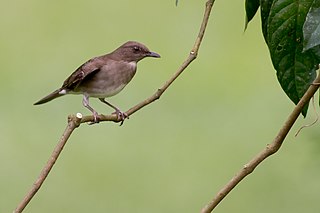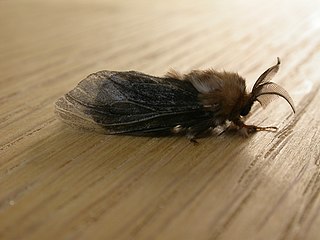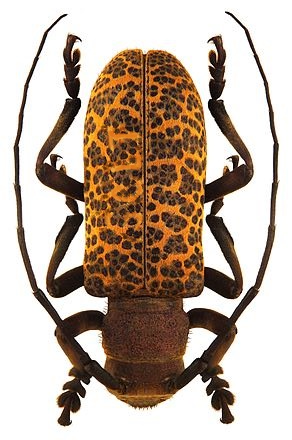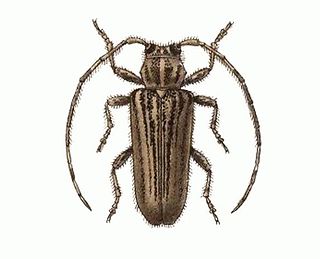
The giant trevally, also known as the lowly trevally, barrier trevally, ronin jack, giant kingfish, or ulua, is a species of large marine fish classified in the jack family, Carangidae. The giant trevally is distributed throughout the tropical waters of the Indo-Pacific region, with a range stretching from South Africa to Hawaii, including Japan in the north and Australia in the south. Two were documented in the eastern tropical Pacific in the 2010s, but whether the species will become established there remains to be seen.

The black-billed thrush is a bird in the family Turdidae native to Colombia and also scantily distributed across Venezuela, the Guiana Shield and the western Amazon.

Clania ignobilis, the faggot case moth, is a species of moth of the family Psychidae. It is found in New South Wales, Queensland, South Australia, Tasmania and Victoria.

Heterocrossa ignobilis is a species of moth in the family Carposinidae. It was described by Alfred Philpott and is endemic to New Zealand and has been observed in Canterbury, in the South Island. Adults are on the wing in January.

Bicyclus ignobilis, the ignoble bush brown, is a butterfly in the family Nymphalidae. It is found in Guinea, Sierra Leone, Liberia, Ivory Coast, Benin, Nigeria, Cameroon, Gabon, the Republic of the Congo, the Central African Republic, the Democratic Republic of the Congo, Uganda and Tanzania. The habitat consists of forests.
Scopula ignobilis is a moth of the family Geometridae. It is found in Japan, Russia, Korea, Taiwan and China.

Estola is a genus of longhorn beetles of the subfamily Lamiinae, containing the following species:
Estola benjamini is a species of beetle in the family Cerambycidae. It was described by Stephan von Breuning in 1940. It is known from Colombia.
Estola brunnescens is a species of beetle in the family Cerambycidae. It was described by Stephan von Breuning in 1940. It is known from Colombia and Venezuela.
Estola nigropunctata is a species of beetle in the family Cerambycidae. It was described by Stephan von Breuning in 1940. It is known from Brazil.
Estola nodicollis is a species of beetle in the family Cerambycidae. It was described by Stephan von Breuning in 1940. It is known from Brazil.
Estola obliquelineata is a species of beetle in the family Cerambycidae. It was described by Stephan von Breuning in 1940. It is known from Brazil.
Estola rufa is a species of beetle in the family Cerambycidae. It was described by Stephan von Breuning in 1940. It is known from Brazil.
Estola freyi is a species of beetle in the family Cerambycidae. It was described by Stephan von Breuning in 1955. It is known from Trinidad.
Estola basinotata is a species of beetle in the family Cerambycidae. It was described by Henry Walter Bates in 1866. It is known from Brazil, French Guiana, and Ecuador.

Estola vittulata is a species of beetle in the family Cerambycidae. It was described by Henry Walter Bates in 1874. It is known from Panama, Mexico and Venezuela.
Estola cerdai is a species of beetle in the family Cerambycidae. It was described by Martins and Galileo in 2009. It is known from French Guiana.
Estola acrensis is a species of beetle in the family Cerambycidae. It was described by Galileo and Martins in 2009. It is known from Brazil.
Estola insularis is a species of beetle in the family Cerambycidae. It was described by Blair in 1933.
Estola kuscheli is a species of beetle in the family Cerambycidae. It was described by Juan Barriga, Tomás Moore, and Danilo Cepeda in 2005. It is known from Chile.







